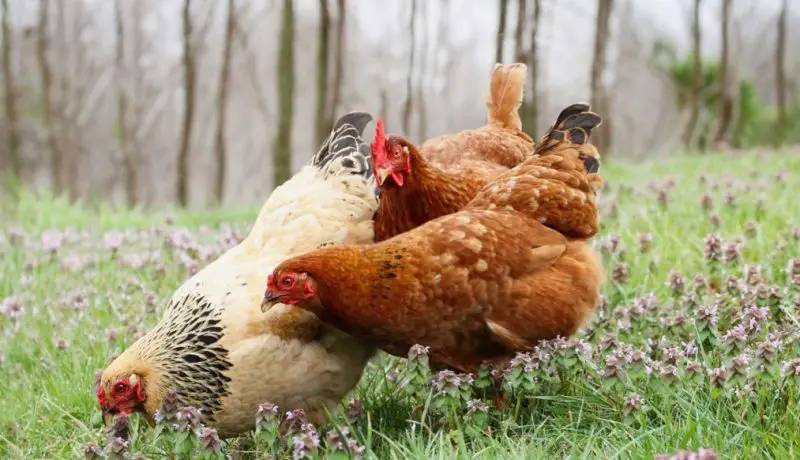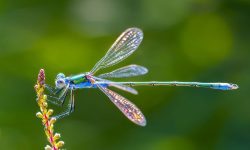Backyard chickens have become a beloved part of modern homesteading. They’re friendly, fun to watch, and provide one of nature’s most valuable gifts—fresh eggs. But to keep your hens healthy, productive, and happy, understanding their diet is essential. So, what do chickens actually eat?
Many new chicken owners assume that hens can live on grains alone, but that’s far from the truth. Chickens are omnivores, meaning they enjoy both plant and animal-based foods. Their diet in the wild consists of seeds, greens, insects, and even small critters. When you recreate this variety at home, your flock thrives with stronger immunity, shinier feathers, and better egg quality.
In this detailed guide, we’ll explore 20 surprising foods backyard hens love, along with feeding tips, nutritional insights, and foods you should avoid. Whether you’re raising chickens for eggs, meat, or companionship, this guide will help you feed them naturally and effectively.
Understanding the Chicken Diet

Chickens are foragers by nature. In a natural setting, they spend their days scratching the ground in search of seeds, insects, worms, and greens. This constant grazing not only provides balanced nutrition but also keeps them active and engaged.
The Basics of a Balanced Chicken Diet:
- Protein: Needed for growth, feather production, and egg formation. Found in insects, worms, and certain seeds.
- Carbohydrates: Provide energy for foraging and egg-laying activities. Found in grains and vegetables.
- Fats: Essential for vitamin absorption and body insulation.
- Vitamins and Minerals: Critical for strong eggshells, healthy bones, and disease resistance.
- Water: Chickens need access to clean water at all times to aid digestion and regulate body temperature.
Commercial chicken feed provides a solid foundation, but offering natural foods enhances their health and happiness. Let’s dive into the 20 favorite foods your backyard hens will love.
20 Surprising Foods Backyard Hens Love
1. Grains (Corn, Wheat, Oats, Barley)
Grains are the cornerstone of most chicken diets, providing energy and essential carbohydrates. Cracked corn is a classic favorite, especially in colder weather when hens need extra calories to stay warm.
Mix grains with their regular feed or scatter them as scratch feed to encourage natural foraging behavior. Oats and barley add variety and are excellent sources of fiber and minerals.
2. Insects and Worms
Chickens are natural bug hunters! They’ll chase beetles, crickets, and worms with enthusiasm. Insects provide a high-protein source that boosts feather growth and egg production.
If your hens are confined to a run, you can supplement their diet with mealworms or black soldier fly larvae. These protein-packed treats are especially beneficial during molting season.
3. Kitchen Scraps
One of the joys of owning chickens is recycling kitchen leftovers. Vegetable peels, rice, and small bits of cooked pasta make tasty and sustainable treats.
Avoid feeding anything too salty, oily, or sugary. Healthy kitchen scraps reduce food waste and provide your hens with variety that keeps their digestive systems strong.
4. Leafy Greens
Chickens love fresh greens like lettuce, kale, spinach, and collard leaves. These vegetables are rich in vitamins A, K, and calcium—nutrients essential for strong eggshells and healthy feathers.
Hang leafy greens inside the coop as a boredom buster. The act of pecking at hanging vegetables mimics foraging behavior and keeps them entertained.
5. Fruits (Apples, Berries, Melons, Bananas)
Fruits add natural sweetness to a hen’s diet. Apples (without seeds), strawberries, watermelon, and bananas are popular treats packed with vitamins and hydration.
Offer fruits in moderation to avoid excess sugar. During summer, chilled melon cubes can help your flock stay cool and refreshed.
6. Seeds and Nuts
Sunflower seeds, pumpkin seeds, and crushed peanuts are excellent energy boosters. They’re rich in fats and proteins that support egg production and glossy feathers.
Offer these as occasional treats, not daily feed, to prevent obesity. Sprinkle a handful of seeds into their scratch feed to make it more nutritious and enticing.
7. Vegetables (Carrots, Peas, Broccoli, Cucumbers)
Chickens enjoy a wide range of vegetables, from chopped carrots to peas and broccoli florets. These veggies provide essential vitamins and minerals for their immune system.
Cucumbers are particularly hydrating and fun for hens to peck on during hot days. Cook starchy vegetables like potatoes before feeding, as raw ones contain solanine, which can be toxic.
8. Cooked Rice and Pasta
Leftover rice and pasta can make a filling snack for your flock. They provide carbohydrates that give hens quick energy during active days.
Always serve plain, unseasoned rice or pasta. Avoid sauces, salt, or butter, as these can upset their digestive system.
9. Pumpkins and Squash
Pumpkins are a seasonal favorite packed with beta-carotene and seeds that act as natural dewormers. Your hens will happily peck at both the flesh and seeds.
You can split a pumpkin in half and place it in the run for several days. Chickens will slowly hollow it out, enjoying the fresh, nutritious snack.
10. Corn on the Cob
Fresh corn on the cob isn’t just fun—it’s nutritious. The kernels provide fiber, carbohydrates, and antioxidants, while the activity of pecking keeps hens entertained.
Serve corn raw or lightly steamed. Avoid canned corn, which usually contains added salt and preservatives.
11. Yogurt
Plain, unsweetened yogurt is a source of beneficial probiotics that help maintain a healthy gut. It can aid digestion and strengthen immune health, especially after a course of antibiotics.
Offer yogurt in small portions—too much dairy can cause diarrhea. Mix it with oats or grains to make a probiotic-rich treat.
12. Eggs (Cooked)
It might sound strange, but chickens can safely eat cooked eggs. They are an excellent protein source that supports muscle repair and egg-laying strength.
Scramble or hard-boil the eggs before feeding to prevent your hens from developing a taste for raw eggs in the nest. This high-protein snack is especially helpful during molting season.
13. Cheese
Small amounts of cheese, like cheddar or mozzarella, are a rich source of calcium and protein. The soft texture makes it easy for hens to peck at.
Cheese should only be an occasional treat, as too much fat can upset their stomachs. Pair small cubes with grains for added variety.
14. Garlic and Herbs
Garlic, parsley, oregano, and thyme are natural immune boosters for chickens. They help prevent parasites, strengthen resistance to infections, and improve respiratory health.
Add finely chopped herbs or garlic powder to their feed weekly. Not only does it enhance flavor, but it also provides powerful natural protection.
15. Peas and Lentils
Cooked peas and lentils are great sources of plant-based protein. They make excellent supplemental food during winter months when insects are scarce.
Always serve legumes cooked, as raw beans and lentils contain lectins that are toxic to chickens. These foods also promote shiny plumage and strong egg production.
16. Grass and Weeds
Fresh grass clippings and safe weeds like clover, chickweed, and dandelion greens mimic what chickens would naturally forage in the wild.
Ensure the grass hasn’t been treated with pesticides or fertilizers. Offering a basket of greens helps confined chickens satisfy their natural grazing instincts.
17. Mealworms
Mealworms are perhaps the ultimate chicken treat. Packed with protein, fat, and essential amino acids, they’re perfect for growth and egg-laying hens.
You can buy them dried or live, or even raise them at home. Offer them a few times a week—your hens will go wild for them.
18. Bread (in Moderation)
Chickens enjoy bread for its soft texture, but it should be given sparingly. Bread contains little nutrition and can fill them up quickly.
Use whole-grain bread instead of white, and only as an occasional snack. Avoid moldy bread entirely, as it can cause severe illness.
19. Watermelon
Watermelon is a refreshing summer treat that helps prevent dehydration. Its high water content cools hens down and encourages hydration on hot days.
Cut into halves or wedges, remove seeds if possible, and place in the run. The bright red color also attracts hens to peck more eagerly.
20. Bugs and Small Critters
In addition to insects, chickens occasionally eat small frogs, lizards, or even mice in the wild. These protein-rich snacks mimic their natural foraging habits and help balance their nutrition.
While you don’t need to provide these in captivity, understanding this natural instinct shows just how omnivorous chickens truly are.
Foods Chickens Should Avoid
Not all foods are safe for hens. Certain ingredients can be toxic or harmful to their digestive systems. Avoid feeding:
- Raw potatoes, beans, and onions – contain toxins like solanine and lectin.
- Chocolate, coffee, and alcohol – toxic to all poultry.
- Salty, sugary, or greasy leftovers – cause obesity and liver issues.
- Avocado pits and skins – contain persin, which is poisonous to chickens.
- Moldy food – can cause severe fungal infections.
Seasonal Feeding Tips
- Spring: Focus on greens, sprouts, and insects to boost energy for egg-laying.
- Summer: Provide hydrating fruits like watermelon and cucumbers to prevent overheating.
- Autumn: Offer protein-rich foods such as mealworms and peas during molting.
- Winter: Add grains, corn, and warm oatmeal for extra calories to combat the cold.
Rotate treats according to the season to maintain balanced nutrition year-round.
FAQs About What Chickens Eat
Do chickens need commercial feed?
Yes. Layer pellets or crumbles ensure your flock receives essential vitamins, minerals, and balanced protein. Natural foods are supplements, not replacements.
Can chickens eat rice or pasta?
Yes, but only plain and cooked. Avoid any seasoning, salt, or sauces.
How often should I give treats?
Treats should make up less than 10% of your flock’s daily diet. Balance them with complete feed.
Can chickens eat meat?
Yes, in small amounts. Cooked meat offers valuable protein but should not be their main food source.
What’s the best food for egg production?
Protein-rich diets with added calcium (like layer feed, mealworms, and leafy greens) support strong eggshells and consistent laying.
Conclusion
Chickens are more than just farm animals—they’re intelligent, social creatures that thrive on a diverse diet. While grains form the base of their nutrition, supplementing with greens, fruits, and protein sources helps keep them vibrant and productive.
By understanding what chickens eat, you can ensure your flock enjoys balanced nutrition, strong immunity, and excellent egg quality all year round. From crunchy greens to sweet watermelon and protein-packed bugs, these 20 surprising foods will keep your backyard hens pecking happily every day.






